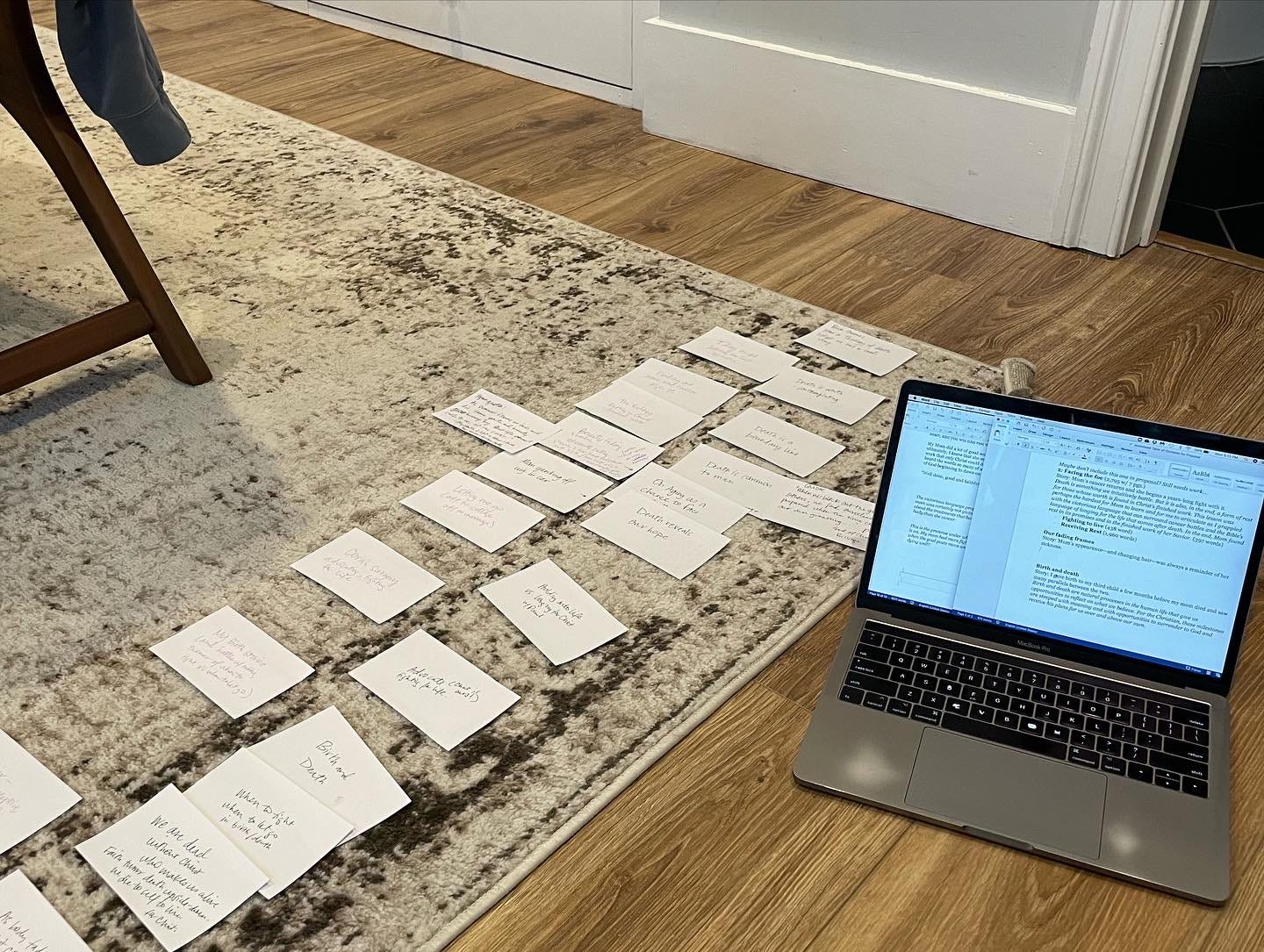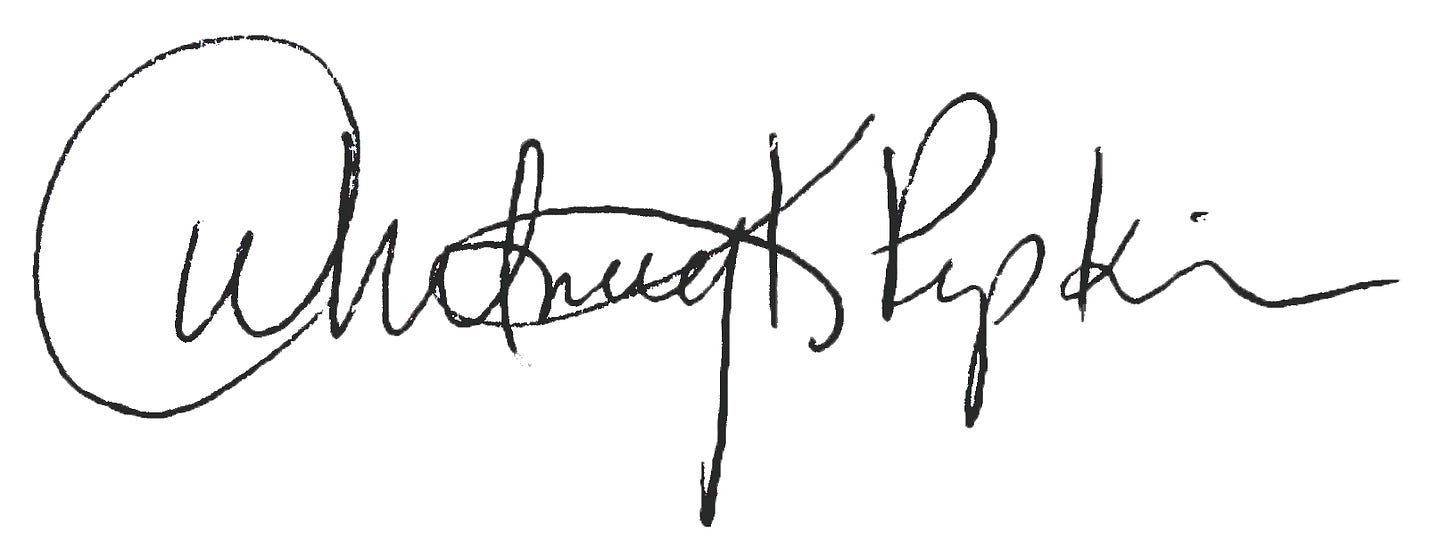Welcome again to this newsletter. I’m so grateful you’ve subscribed. I made a big book announcement on Instagram & Facebook yesterday. But, since many of you may have subscribed after seeing it, feel free to scroll on past this next section for more!
Send me to readers who need these words.
This is the prayer I whispered over a book proposal before pushing send earlier this year. And, this week, I signed my end of the contract with Moody Publishers saying I’ll do the thing.
I am writing a book!
The working title is We Shall All Be Changed: How walking with loved ones through sickness and death transforms us too. It’s a heavy topic, yet somehow it feels lighter and more relevant with each word I get onto paper. This is, as writers say, the book I looked for and couldn’t find. It is a letter to others who may have the opportunity to care for and draw near to loved ones in their time of need. It is a note to myself to remember the surprising, transforming nearness of God in the valley of the shadow.
But it is also an invitation for all of us to consider death—even if we don’t think we have to yet—to develop a value category for doing so alongside others. Contemplating death in light of its inevitability is not masochism; it is wisdom. It teaches us to number our own days, to labor not in vain but with the end in view. Just as it helps to develop a theology of suffering—the idea that God might still be good when all is going wrong—before we dive headlong into it, it serves us to foster a theology of death before we are desperate for one.
Thank you for signing up for this newsletter! It gives me courage to know I can practice sending the words somewhere, to actual someones, who graciously take the time to read them. I would love to hear any and all feedback you have along the way.
As a specific thank you, I am pasting below a preview of my Table of Contents for the book. This is, of course, subject to change, but I always like seeing these as a glimpse into what writers have in mind as they’re setting out.

Introduction
I lived in fear of my mom’s death since she was first diagnosed with breast cancer when I was in the seventh grade. Twenty years later, in 2020, no one was as surprised as I was at the sense of urgency I felt to be near and to care for her when she was dying.
1: On learning in the dry land of loss
How close encounters with death change us, humble us and teach us how to number our days and live well.
2: Life’s boundary lines
We all have a beginning and an end, and this is for our good.
3: Facing the foe
How coming face-to-face with death brings what the Bible says about it to life.
4: Our fading frames
How the changing of our physical bodies over time or with sickness is another dust-to-dust reminder that rightly changes our perspective.
5: Birth and death
Giving birth to my third child a few months before walking my mom through the dying process revealed a lot of similarities.
6: Letting go
How the power struggles between a mother and daughter played out in the leavings and lettings go of life.
7: Coming alive
Seeing spiritual realities—dead in sin, alive in Christ—coming to life as Mom’s body faded and her hope became reality.
8: Going home
Drawing near to the dying allows us to experience and be the intimate care of a loving God to them.
9: Death is still an enemy
What death is really like and the toll it takes on us all. Christians still do battle with this defeated enemy.
10: Glory hidden within
There is beauty and provision hidden in the dying process.
11: The After Times
The grief and the God-with-us who holds us in the pit.
12: The End is so Already
How having someone on the “other side” leaves us longing for glory all the more.
I would love to hear which chapter sounds most interesting to you. If you have a personal experience to share, I would be honored to hear about it (just reply to this email). Writing a book like this relies on a somewhat counterintuitive principle. Writer Jacqueline Woodson puts it best:
“The more specific we are, the more universal something can become. Life is in the details. If you generalize, it doesn't resonate. The specificity of it is what resonates.”
But I also stand to benefit from hearing what the process of walking with others through sickness and death has been like for you. These stories sensitize me to other realities as I step into the heavy-lifting of penning my own.
This week, I’m living in chapter three, trying to finish a pretty tough section on what our posture should look like as we face the foe that is death. (I would love your prayers!) After stalling out last week, I’ve decided I need to zoom back out and include a little Intro: Theology of Death box somewhere in this chapter. I hope this will show readers where I’m going and give us a road map we can check back in with as we venture out to explore the finer points of it.
That’s a little glimpse into the book-writing process so far! While I’ve written as a journalist for years now, this is my first book. I am sure I will learn plenty as I go. Other authors have been so generous with their wisdom, too. Their encouragement and yours have been manna. I’m trusting for just enough to do the next chapter, then the next.
p.s. I haven’t always thought about writing a book, but I have often toyed with the idea of penning one under the name “W.K. Pipkin.” It feels very G.K. Chesterton. Also, I think many men don’t read female authors (almost by accident) and might be swayed by pen names. That said, I think the birth chapter will show my true colors pretty quickly. 😉



